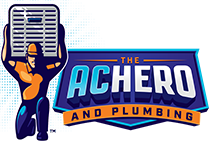Of the important decisions a homeowner must make, buying a new A/C is just about at the top of the list. Your air conditioner affects your comfort, happiness, and indoor air quality. When purchasing one, you know it’s going to be expensive. But you can make the most of your investment with these expert tips.
Know When It’s Time for an Air Conditioner Replacement
Replacing your air conditioner at just the right time can be very cost-effective. You should consider a new system when you notice:
- Reduced Cooling Performance: If your home isn’t getting as cool or the temperature varies from room to room, investing in a new A/C can be a good idea.
- Age: Most air conditioners will show signs of wear by 10 years. Plus, newer models are built to be more efficient, so can save you over time.
- Frequent repairs: If maintenance is getting more costly, the system breaks down often, and/or there are signs of general wear, consider replacing it.
- Odd Sounds/Odors: Screeching, squealing, rattling, and other loud sounds, or musty and other foul odors, can mean there’s so much degradation that replacement is the best choice.
- It Uses Freon: Freon, or R-22/CHFC-22, has hazardous compounds. You aren’t required by law to replace an A/C that uses Freon, but obtaining it is becoming more difficult and expensive.
Consult with a Professional HVAC Contractor
Far too often, HVAC systems are improperly installed, reducing comfort, efficiency, and operating life. That’s why you need a professional contractor who evaluates your home before selecting a unit and helps choose the right model, size, and configuration. Before signing a contract, get a quote from at least three different contractors that contains all the specifics of the job.
Know Your Air Conditioners’ Efficiency
An A/C unit’s efficiency can be determined by knowing its Seasonal Energy Efficiency Ratio (SEER). The U.S. Department of Energy requires a minimum SEER rating of 14, but 14 to 22 is considered energy efficient. Another measure is the Energy Efficiency Rating (EER), which is the rate of cooling at 95°F divided by how much energy the system uses (in BTU per watt-hour). Always look for models with the ENERGY STAR label.
The Right Sized Air Conditioning Unit
If an A/C is too small, it will run continuously, use more energy, and wear out faster, while too large a unit can overcool your home, turn off too quickly, and leave behind residual heat that will warm up your home again. Frequent starting and stopping can damage the unit. A 3-ton A/C suits a large house, and one ton of cooling can cover up to 500 square feet. But other factors in sizing include climate, insulation type, and areas of sun and shade. Consult with an A/C contractor to help size your system before installation.
Creating an Air Conditioner Maintenance Plan
Ask your contractor if a maintenance plan is available. It should include annual tune-ups and inspections that keep your system under warranty. Regular maintenance allows an A/C to run at its maximum efficiency level and avoids expensive repairs and breakdowns.
The Best Air Conditioner Type for Your Home
Residential HVAC systems come in several potential options. Depending on the needs of your home, a contractor can help you choose the right central air conditioning system. They can also inform you about ductless split, window, portable, hybrid, or geothermal units that fit your budget.
Programmable Thermostat
A programmable thermostat helps adapt heating and cooling to your schedule. It may learn your routine automatically and be accessible via your smartphone, depending on the model. Other A/C features to look for include energy-saving modes, indicators such as check-filter lights, timers, sleep modes, oscillating vents, and more.
Contact The AC Hero
Our skilled technicians are ready to help you choose an A/C system for your home in the Austin area. Receive upfront pricing, a complete inspection, and unmatched warranty and learn about options and financing by calling 817-587-0634 today.
